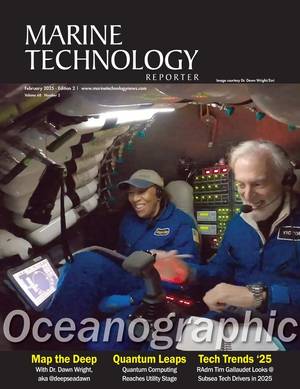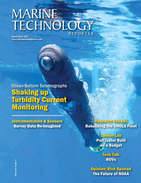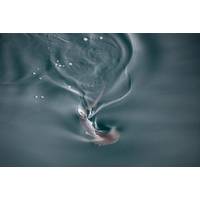
Scientists Discover Possible Hammerhead Shark Nursery in Ecuador's Galapagos
several weeks ago, spotting a young female hammerhead off of Isabela Island, the Galapagos' largest island, and tagging her.Researchers will continue to monitor the shark to confirm that she was in a breeding area.The Galapagos Islands with its unique wildlife was critical to British scientist Charles Darwin's theory of evolution. It is home to many species not found elsewhere such as giant tortoises, flightless cormorants and marine iguanas.Many are also in danger of extinction.(Reuters - Reporting by Alexandra Valencia; Writing by Kylie Madry; Editing by Josie Kao
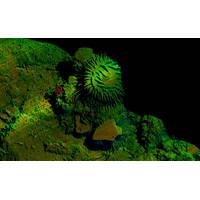
Voyis Provides Subsea Tech for Galápagos Coral Expedition
expedition with Memorial University of Newfoundland in the Galápagos Islands, exploring and documenting the enigmatic world of cold-water coral ecosystem.The expedition, led by Chief Scientist Katleen Robert, was funded by Schmidt Ocean Institute, and also included the participation of the Charles Darwin Foundation and the Galápagos National Park.The Galápagos Islands, renowned for their unique biodiversity, are home to a multitude of cold-water corals, including those residing in vertical habitats.Taking place from September 18 to October 19, 2023, the expedition was equipped with
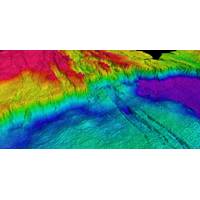
DISCOVERY: High-Res Mapping Tech Helps Find New Hydrothermal Vent Field
;s management of their own marine resources. Schmidt Ocean Institute is committed to stewarding new technologies that allow us to fully map and characterize the seafloor.” The 30-day expedition began on 24 October 2023 in collaboration with the Galápagos National Park Directorate (GNPD), Charles Darwin Foundation, and the Ecuadorian Navy’s Oceanographic and Antarctic Institute (INOCAR).Other participating institutions included Memorial University of Newfoundland, University of Victoria, Dalhousie Press Release University, University of Ottawa, The Japan Agency for Marine-Earth Science
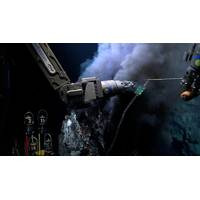
New Hydrothermal Vent Found Near Galápagos
, named the vent field “Sendero del Cangrejo,” which translates to “Trail of the Crabs.”The 30-day expedition began on August 13, 2023 on Schmidt Ocean Institute’s research vessel Falkor (too) in collaboration with the Galápagos National Park Directorate (GNPD), Charles Darwin Foundation, and the Ecuadorian Navy’s Oceanographic and Antarctic Institute (INOCAR). Other participating institutions included University of Rhode Island, Lehigh University, the Lamont-Doherty Earth Observatory, United States Geological Survey, Harvard University, and the University of
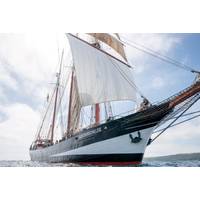
Global Conservation Mission Sets Sail from UK in Darwin's Wake
Almost two centuries after Charles Darwin's voyage around the world, environmentalists plan to follow in his footsteps by undertaking a two-year journey across four continents to study endemic wildlife and boost conservation.The group will set sail on board a 105-year-old schooner on Tuesday from the southern English port of Plymouth, from where British naturalist Darwin's own expedition began in 1831, leading him to develop the theory of evolution by natural selection.The 40,000 nautical mile "Darwin200" expedition hopes to anchor in 32 ports, including all the major ports visited
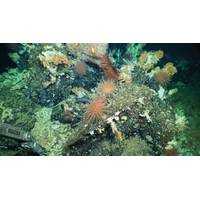
New Coral Reef Discovered in Ecuador's Galapagos Islands
coast of Darwin Island, but the new discovery shows other coral has persisted, the ministry said in a statement.The reef has more than 50% living coral."This is very important at a global level because many deepwater systems are degraded," said Stuart Banks, senior marine researcher at the Charles Darwin Foundation, who participated in the expedition. The coral is several thousand years old at least, he added.The South American country last year expanded the Galapagos marine reserve by 60,000 square km (23,166 square miles), an extension of the 138,000 square km already in place, to protect endangered
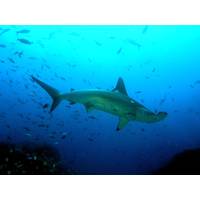
Ecuador Eyes New Galapagos Marine Reserve
of turtles, whales and sharks threatened by industrial fishing and climate change.A massive Chinese fishing fleet operating near the Galapagos gained global attention here last year over concerns about the potential impact to marine wildlife in the remote islands that inspired British scientist Charles Darwin's theory of evolution.Ecuador has little recourse to prevent Chinese fleets from fishing at the edge of its waters, but can limit the activities of its own domestic commercial fishing industry, said Environment Minister Gustavo Manrique.“This plan, if it goes ahead, would have social
World First: Patrol Vessels Deploy 3D Printers
.The Morrison Government will invest $1.5 million in the two-year Supersonic Deposition 3D printer pilot, which will lead to a significant increase of parts availability compared to what the regular supply chain can provide.Minister for Defense Industry, the Hon Melissa Price MP, congratulated the Charles Darwin University’s Advanced Manufacturing Alliance, along with industry partner SPEE3D, for producing the cutting edge and uniquely Australian capability.“This high-tech machinery enables metal components to be produced quickly and efficiently, meaning our ships can get back on the water
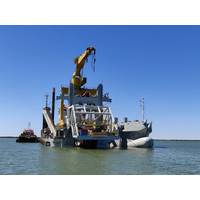
Jan De Nul Completes Port Hedland Dredging
main export commodity. Currently it facilitates the safe and efficient management of approximately 6,000 vessel movements each year.Jan De Nul Group further customized its fleet in order to meet the planning and strict operational and environmental requirements. The Trailing Suction Hopper Dredger Charles Darwin was fitted with an in-house designed ripper draghead, providing enhanced capabilities. In addition and for specific areas within the dredge area, the Hopper Dredger Juan Sebastián de Elcano was equipped with an in-house developed milling draghead, adding to the flexibility and cost/time
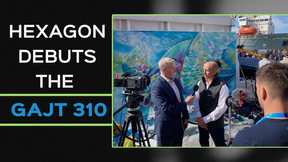
 February 2025
February 2025
